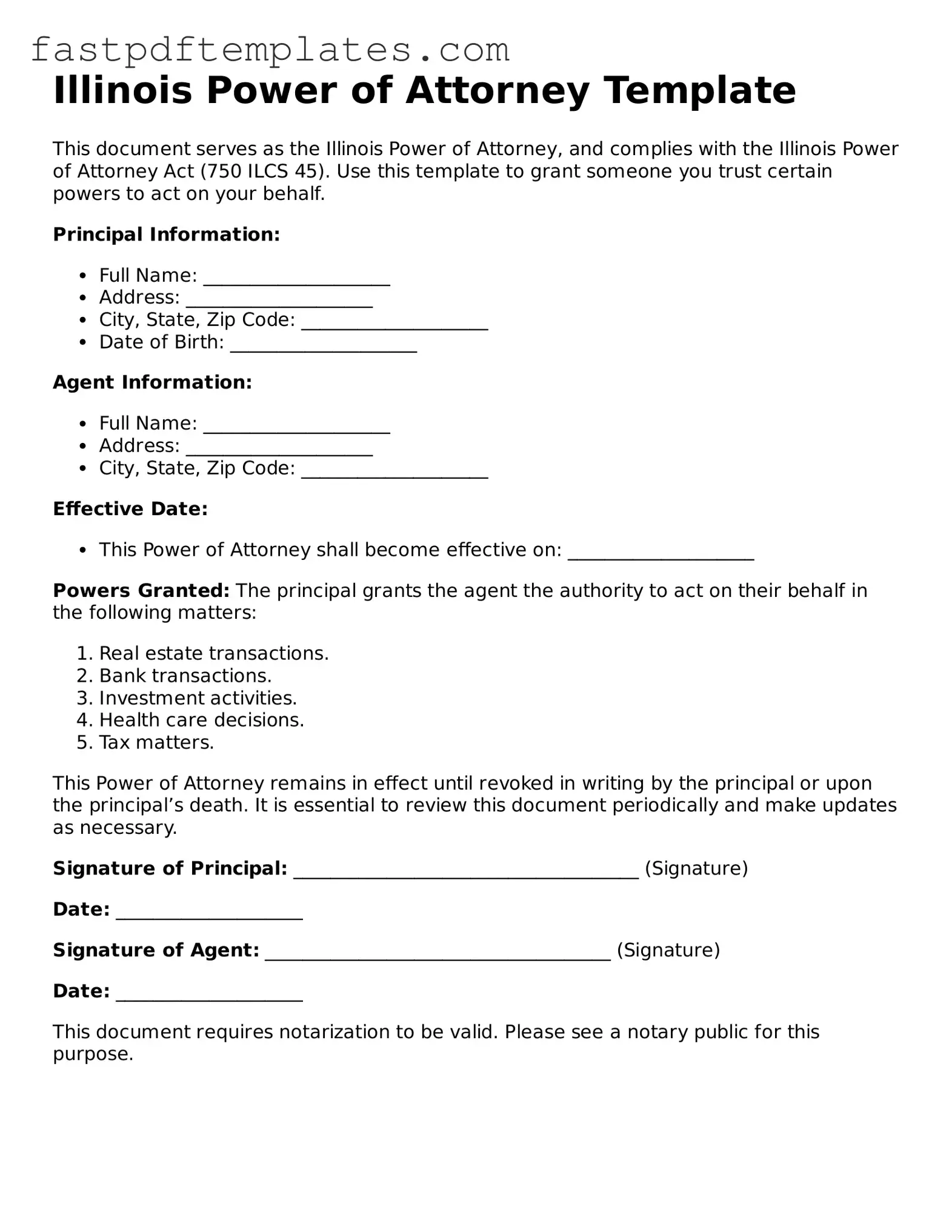The Illinois Power of Attorney for Health Care is a document that allows individuals to appoint someone to make medical decisions on their behalf if they become unable to do so. Similar to the general Power of Attorney, it specifically focuses on health care matters. This document ensures that your wishes regarding medical treatment and end-of-life care are respected, providing peace of mind for both you and your loved ones.
The Durable Power of Attorney is another related document that grants authority to an agent to handle a person’s financial affairs. Unlike a standard Power of Attorney, which may become invalid if the principal becomes incapacitated, a Durable Power of Attorney remains effective even in such circumstances. This continuity is crucial for managing financial responsibilities without interruption.
The Springing Power of Attorney is designed to take effect only under specific conditions, typically when the principal becomes incapacitated. This type of document offers flexibility, allowing individuals to retain control over their affairs until they need assistance. It is similar to the Illinois Power of Attorney in that it grants authority to an agent, but the timing of its activation is what sets it apart.
A Medical Directive, often referred to as an advance directive, outlines an individual's preferences for medical treatment in case they cannot communicate their wishes. While the Illinois Power of Attorney for Health Care appoints someone to make decisions, a Medical Directive provides specific instructions regarding treatment options. Both documents work together to ensure that a person's health care preferences are honored.
The Living Will is a specific type of advance directive that focuses on end-of-life care. It allows individuals to express their wishes about life-sustaining treatments in situations where they are terminally ill or in a persistent vegetative state. Like the Power of Attorney for Health Care, a Living Will aims to communicate a person's desires regarding medical treatment, but it does so in a more defined context.
The Financial Power of Attorney is similar to the general Power of Attorney, but it is specifically tailored for financial matters. This document allows an agent to manage financial transactions, pay bills, and handle investments on behalf of the principal. While both documents grant authority to an agent, the Financial Power of Attorney focuses solely on economic responsibilities.
The Guardianship document involves a legal process where a court appoints a guardian to make decisions for someone deemed incapacitated. This is different from a Power of Attorney, which is created voluntarily by the individual. However, both serve the purpose of ensuring that someone is looking out for the best interests of a person who cannot manage their own affairs.
The Trust document allows individuals to transfer assets to a trustee, who manages those assets for the benefit of the beneficiaries. While a Power of Attorney grants authority to make decisions on behalf of someone else, a Trust establishes a legal entity that holds and manages assets. Both documents can be part of a comprehensive estate plan, but they serve different functions.
The Will is a legal document that outlines how a person's assets will be distributed after their death. While the Power of Attorney is effective during a person's lifetime and ceases upon death, a Will only takes effect posthumously. Both documents are essential for estate planning, ensuring that an individual's wishes are honored in different contexts.

